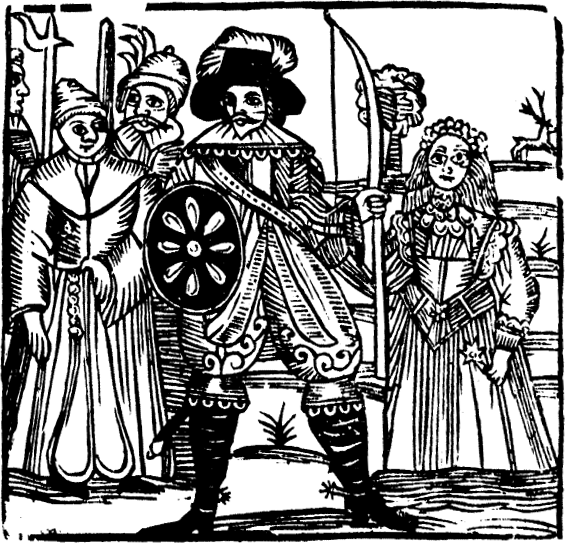Last weekend I was lucky enough to be interviewed by Andrew Sommerfeld of the Legends, Loot & Lore podcast. We talk all things leadership and D&D. A great discussion. If you’d like to see the whole 56 minute discussion you can check it out below:
Leadership Styles Unveiled: Translating D&D Dynamics into the Business World
Leadership plays a pivotal role in both the immersive world of Dungeons and Dragons (D&D) and the dynamic landscape of the business world. Today, we explore some of the leadership styles observed during D&D gameplay. Before examining how these styles can be translated and applied to leadership in a business context. Understanding the strengths, limitations, and effects of different leadership styles is the first step. Individuals can then use the game to experiment with and practice their leadership skills, adapting their approach to various real word and fantastical scenarios.
I believe having a safe space to experience leadership situations lets the student understand the impact of their actions with much more clarity than a theoretical lecture. Believe it or not the act of leading a team in defeating a dragon develops similar leadership muscle needed for dealing with a competitor in business. Letting aspiring leaders make mistakes in a simulation will ultimately make them stronger leaders with their teams in the workplace.
The Commanding Leader: Strength in Authority
In D&D, some leaders naturally assume a commanding role, taking charge and guiding the party decisively. They provide clear directions, make authoritative decisions, and inspire confidence in their abilities. This leadership style can be effective in situations where quick decisions and strong direction are needed. However D&D, at it’s heart is a collaborative game. Falling in to this type of style too regularly can make the other members of the party feel left out and disgruntled.
Translating this style to the business world, commanding leaders can thrive in crisis management or situations requiring a strong, authoritative presence. However, they must take care when the pressure is off. As this style can often translate into micromanagement and dictatorial behaviors. Ultimately this can lose the trust and loyalty of the team.
There is a reason that leaders who do well in wartime, where fast crisis management is required, often perform badly in times of peace. The Duke of Wellington and Winston Churchill are two excellent examples of this.

The Visionary Leader: Inspiring with Purpose
Certain D&D leaders embody a visionary style, inspiring their party members with a grand vision and a sense of purpose. They articulate a compelling narrative, foster enthusiasm, and motivate others to pursue shared goals. For example, a party member might have an purpose to do good in the world, overthrowing all oppressors. Think Robin Hood, stealing from the rich and giving to the poor. The rest of the group might really get on board with this vision. The party then have a strong purpose that they can all align to, giving strength to their actions and decision making.
In the business world, visionary leaders inspire their teams with a clear vision of the future, instill a sense of purpose, and drive innovation and growth. Steve Jobs and Elon Musk of Apple and Tesla fame respectively, are both prime examples of visionary leaders. They are setting out to change the world. People align with their purpose and their Why. As such team members are motivated beyond material worth and come to work with a sense of purpose envied by other companies and leaders.
The Servant Leader: Empowering and Supporting
The servant leader in D&D focuses on empowering and supporting their party members. They prioritize the needs of others, actively listen, and provide guidance and assistance when required. This often falls to the most experienced player of the group. Instead of leading brashly from the front they will focus on making sure that everyone is having a good time, engaging with the story and making the most of their time at the table.
This leadership style emphasizes collaboration, trust, and empathy. In the business world, servant leaders create a supportive environment, nurture talent, and prioritize the growth and development of their team members, fostering high levels of engagement and productivity. Nelson Mandela is a good example of a servant leader.
One of the main disadvantages of servant leadership is the time required to do it well. Servant leaders need to invest a lot of time and energy in listening to and serving the needs of their followers, as well as in developing and mentoring them. This can mean that they cannot do their other tasks as well as they like. Or, in the D&D sense not get as much from the game as the other players at the table.
The Democratic Leader: Facilitating Collective Input
Democratic leaders in D&D emphasize inclusivity and collective decision-making. They actively seek input from team members, encourage open dialogue, and value diverse perspectives. By doing so the spotlight at the table is shared and the players all feel part of the team and story. This style is great for keeping everyone engaged with the game and is a real bonus at every table.
This leadership style fosters a sense of ownership and engagement within the team. As such, in the business world, democratic leaders encourage participation, involve team members in decision-making processes, and tap into the collective intelligence of the group to drive innovative solutions. However, this does not mean delegation of the hard decisions. Ultimately, having engaged with and listened to the team, the leader still has to make the call. Taking responsibility for the tough calls is all part of the role.
Dwight Eisenhower, the 34th President of the USA is cited as having a strong democratic leadership style.

The Adaptive Leader: Flexibility in Approach
The adaptive leader in D&D demonstrates versatility by adapting their leadership style to fit the needs of the party and the situation at hand. They can switch between different styles, effectively utilizing each one as needed. This is an essential style for every DM out there. The game shifts in style and tone on a regular basis. Whether investigating a murder or battling a horde of goblins the expectations on the players is different. A good DM has to adapt accordingly, keeping the game moving and keeping everyone engaged.
This dynamic leadership style is essential in the ever-changing business world, where leaders must be flexible and adaptive to navigate diverse challenges and contexts. This last decade has seen an inordinate amount of disruption in almost every industry. AI, electric vehicles, internet of things, autonomous vehicles are just the tip of the iceberg. Being able lead your organization through these disruptions is an important element of leadership. Don’t be like Kodak and miss the boat.
The Steward Leader: Fostering Long-Term Success
This is the leadership style I most identify with. As a DM it is your role to make sure everyone enjoys the game and you are effectively the steward of the experience. You want to make the experience engaging and enjoyable so that the game and group have the potential to last for a long time.
Similarly, as a leader I believe you have a role to look after the team over the long term. You are the Steward of the business, division or team. It is up to you to set them up for long term success. It is not about flash in the pan success. Rather setting things in motion now so that the business is still strong and thriving ten years from now.
Final Thoughts on Leadership Styles
Leadership in D&D showcases a range of styles, each with its own strengths and applications. By observing and understanding the leadership dynamics within the game, individuals can develop valuable insights into real world leadership styles. Of course, leaders aren’t one or the other style. Rather they are a blend, with different styles taking the forefront as the situation needs.
Whether it’s commanding authority, inspiring with vision, empowering as a servant, facilitating as a democrat, adapting to different situations, or stewarding for the long term, leaders can draw inspiration from their D&D experiences to enhance their leadership skills and effectively navigate the complexities of the business landscape.
Maybe your next leadership training should be centered around D&D!


